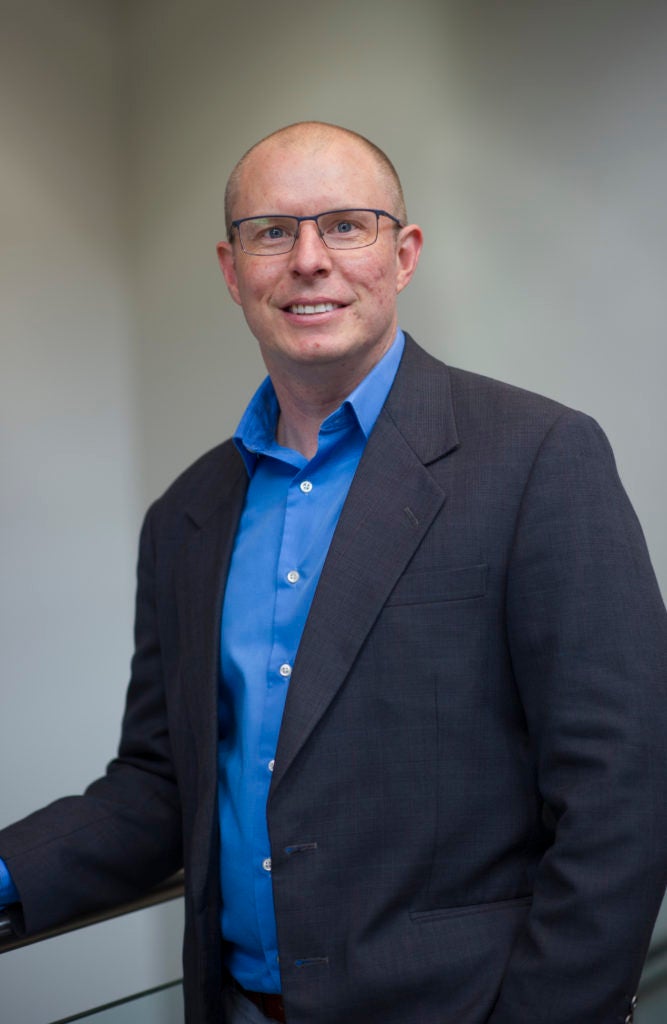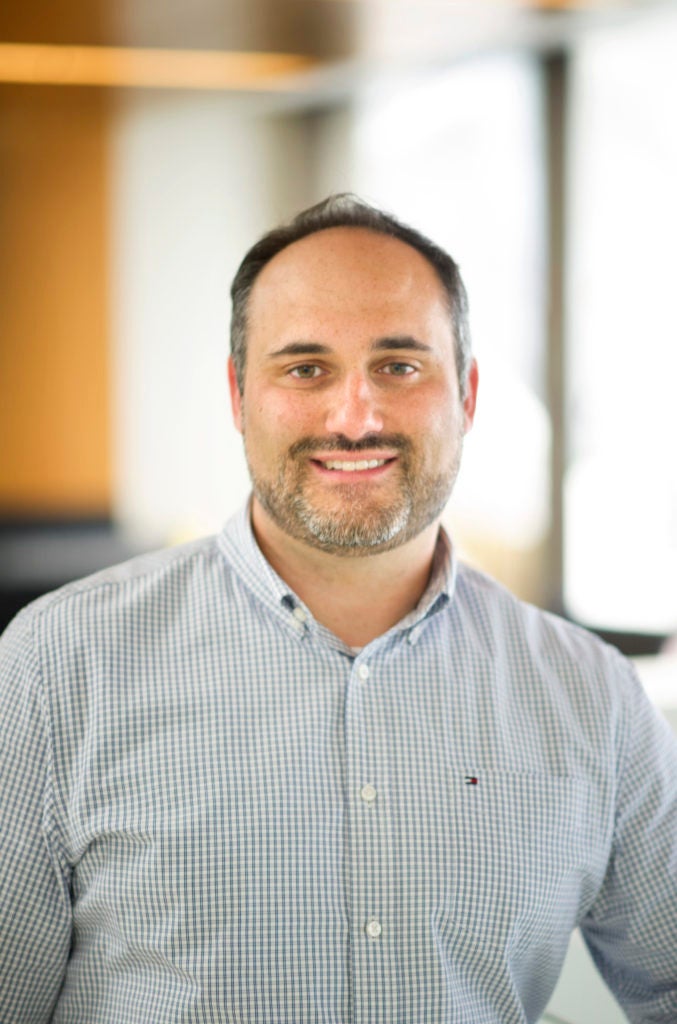Biotechnology Graduate Hour: The Compatibility of Research in Lecture and Lab Settings
July 13, 2020
On July 7th, the Georgetown University Biotechnology Program virtually held their bi-monthly Biotechnology Graduate Hour which featured Drs. Peter Sykora and Kyle DiVito. The Graduate Hour has helped shine the spotlight on both alumni and professors who have encountered success through their experience with the Biotechnology Program. The Graduate Hour Programs helps bridges the connection for either a student interested in on-campus research, or a student intrigued by the private biotechnology industry. These meetings provide valuable connections by offering an informal discussion-type setting for those who virtually attend.
Dr. Peter Sykora centralized his talk around the courses he teaches and his research interests pertaining to DNA damage and repair. Dr. Kyle DiVito offered his advice on why the program stood out to him while focusing on the symbiotic relationship formed between the students and the faculty.

Dr. Peter Sykora
Dr. Peter Sykora has been an Adjunct Assistant Professor with the Georgetown University Biotechnology Program for three years. He is heavily involved in cutting-edge biotechnology and is the Chief Scientific Officer of Amelia Technologies, a company based out of Washington, D.C. This company was founded by the late Jack G. Chirikjian, who also founded the Georgetown University Biotechnology Program.
Dr. Sykora teaches DNA Damage, Repair and Human Therapy (BCHB 531,) which is offered during fall semester on Thursdays, 6:00 – 8:30 PM. This course not only involves understanding important DNA mechanisms, but also relates them to genome engineering and common diseases including aging and cancer. The course also highlights the importance of emerging ethical issues regarding advanced biomedical therapies. Other topics covered in this class include sources of DNA damage and the consequences that these damages cause in humans (such as metabolic dysfunction and neurodegeneration.) Not only does this course exceptionally blend science, biomedical innovation and ethical themes, but it also engages students by involving current affairs related to research focused on advanced therapies.
Dr. Kyle DiVito is an Assistant Professor in the Biotechnology Program at Georgetown University. He is also a former graduate of the program’s 2007 class. When asked about the aspects of the program that influenced his decision to enroll, he brought up the strong bond between the students and faculty. When Dr. DiVito entered the program, he described that it immediately felt like a family. The strongly engaged faculty reinforced his decision to stay at Georgetown to pursue a Ph.D. focused on cancer research.

Dr. Kyle DiVito
Current research projects in Dr. DiVito’s laboratory include innovative biotechnology techniques related to biomedical engineering. His project involves vascularizing tissues in “in vitro” settings. In vitro studies involve the manipulation of cells outside of their native, biological environment, whereas in vivo experiments are performed in the native cell conditions. There is a limitation associated with in vitro experiments as they typically do not provide an accurate representation of the three-dimensional structure of certain tissues. Dr. DiVito’s work involves proposing a novel solution to this problem. His research methodology for vascularizing tissues, such as the skin and blood-brain barrier, involves a combination of in vitro and in vivo technologies whereby cells grown in two dimensions are harvested and then supported with a synthetic vasculature for use in organ-on-chip in vitro technologies.
Dr. DiVito currently directs the following courses offered in the program: Core Methods of Biotechnology (BCHB 526) Recombination Protein Production and Bioprocessing (BCHB 537), Applications of 3D Cell Culture in Drug Discovery (BIOT 610), and Principles of Biochemistry (BCHB 713).
The final component of the hour-long meeting involved an open dialogue forum, where participants had the opportunity to ask the faculty members questions about the program. Dr. Sykora was asked his opinion regarding the transition from academia to industry. His advice addressed the importance of how research methods differ in various work environments. For instance, the way that experiments are performed in primary research is different from how they are performed in an industrial setting. In primary research, one is usually focused on obtaining one-time in-house data results. In industry research, one is focused on achieving an experimental approach that can be routinely replicated by others consistently.
Reecha Badave, a 2017 graduate, expressed how faculty members helped her secure employment opportunities post-graduation. She worked closely with Professor Khuyen Mai, Director of the Capstone Internship, on sharpening her lab skills and research knowledge in class. This crucial lab experience strengthened Reecha’s career journey by helping her secure employment in India working with cancer diagnostic projects, such as liquid biopsy techniques.
This virtual “Open House” is offered every 1st and 3rd Tuesday until August 18th. The meetings are open to a wide variety of engaged scholars: from prospective students, to former alumni, to adjunct professors, and to industry professionals. Hearing from different perspectives on how to make the most of the Biotechnology Master’s Program opens up a Pandora’s Box of career opportunities. The next meeting will be held on July 21, from 6:00 – 7:00 p.m.
By Tierney Sovic, MS in Biotechnology Candidate, Dec 2020
Contributors Kyle DiVito and Peter Sykora
Edits by Vasna Nontanovan